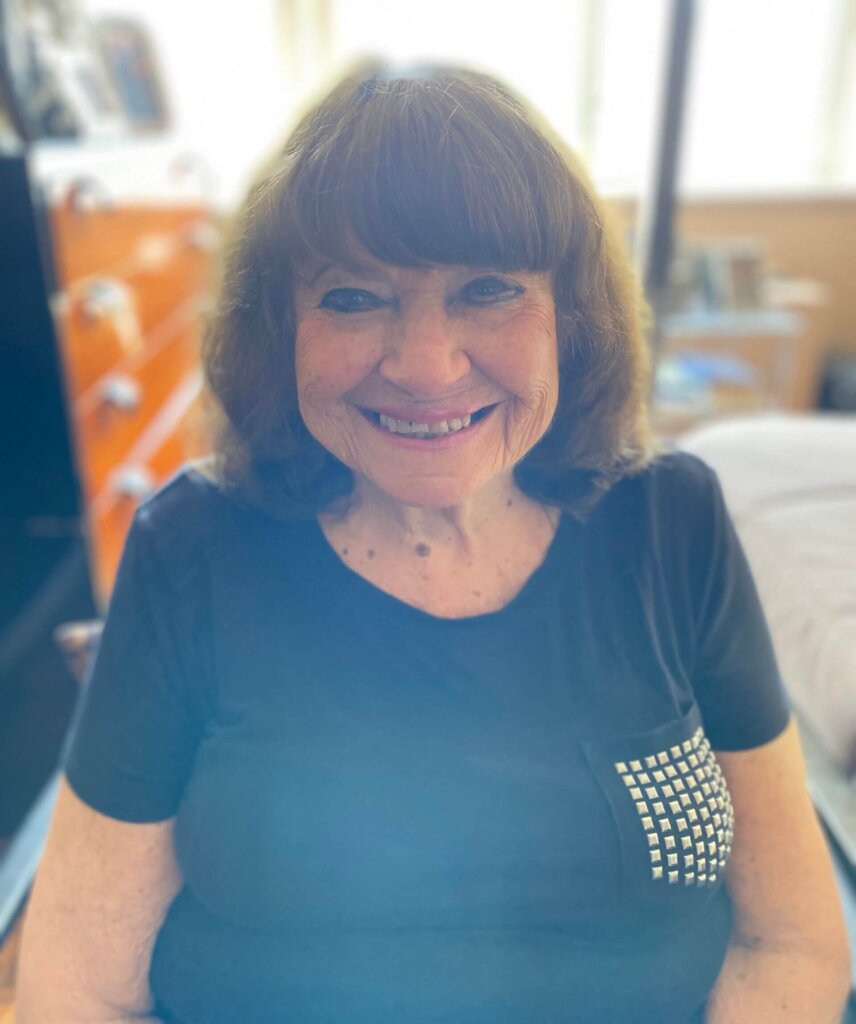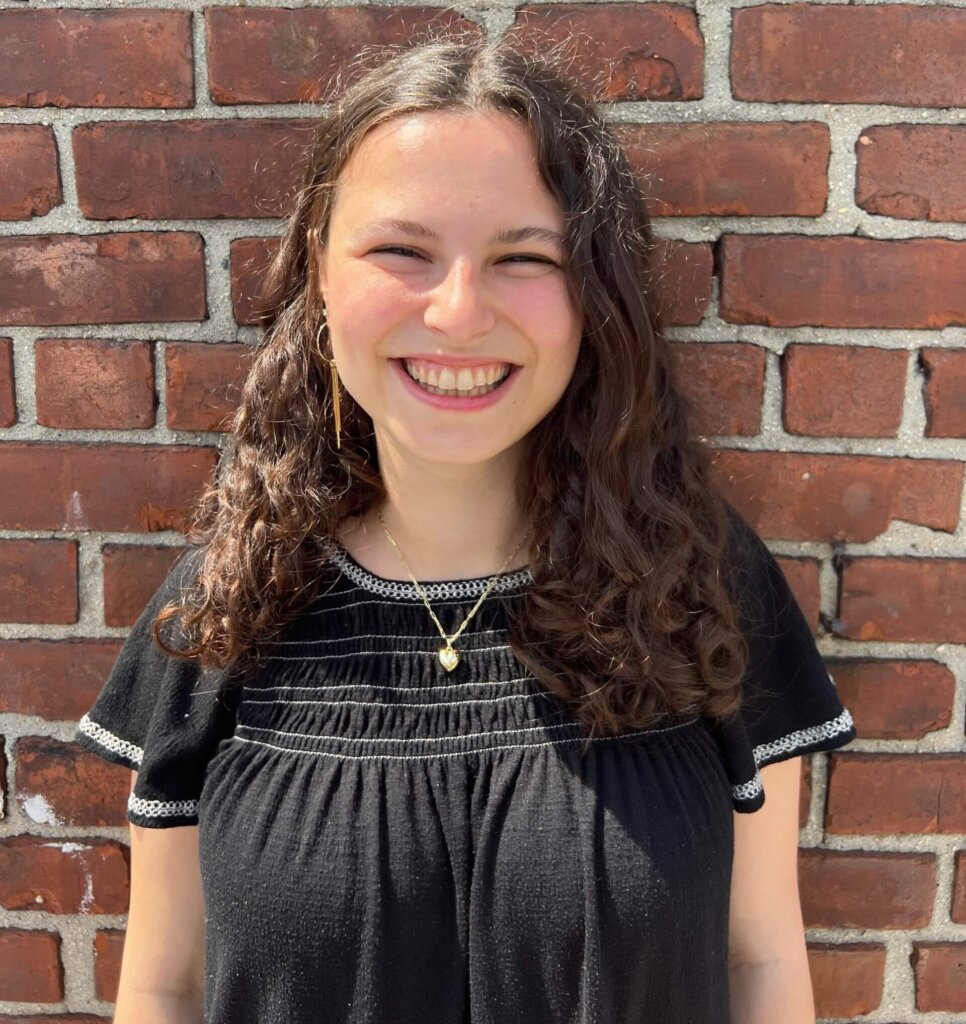For Jewish seniors who can’t visit loved ones’ graves on their own, free rides and a prayer book
Dorot, the New York-based nonprofit, has resumed its program to help scores of elderly make the trip to the cemetery

Irene Weiser, 96, in June 2023 visited her husband’s grave at Mount Hebron cemetery in Queens, New York, for the first time in more than a decade. Courtesy of DOROT

Irene Weiser and her husband Michael had been married 68 years when he died in March 2011. He was buried at Mount Hebron Cemetery in Flushing, Queens, and Weiser returned a year later when the headstone was put in place.
Now 96, Weiser thought she might never visit again, though not because she didn’t want to.
Public transportation doesn’t serve her well, she has not driven a car in years, and her son and daughter don’t drive anymore either. She and her son had some discussions about trying to take an Uber, but couldn’t make it work.
“I felt very badly,” she said of her long absence from the gravesite.
But last month, for the first time in more than a decade, Weiser prayed at her husband’s headstone.
Dorot, a New York-based nonprofit founded by Jewish social workers to serve the elderly, this year revived its “Cemetery Visits” program. Though Dorot, which means “generations” in Hebrew, first began organizing these visits 41 years ago, it had effectively paused them during the height of the COVID-19 pandemic to protect the people it serves.
“Many of our older adults have no other way to get to the cemetery,” said Carrie Jacobs, Dorot’s manager of volunteer services.
A ride and a hand

Weiser had company on her visit to Mount Hebron cemetery. Ruthie Gottesman, 25, who lives in Fort Greene, Brooklyn, works for the AARP and has volunteered with Dorot for four years, was one of 38 people who signed up to accompany seniors to cemeteries.
Dorot organizes the visits over two days each year, and in its busiest years, ferried about 100 people to their loved ones’ graves with a companion like Gottesman, a volunteer trained to help a senior find a grave, navigate over grassy terrain and cope with strong emotions. This year Dorot assisted 61 older adults who visited 18 different cemeteries in Queens, Staten Island, New Jersey, Long Island and Westchester County, New York.
Gottesman began the day of Weiser’s visit at Dorot’s Manhattan offices, where, after an orientation, a car service drove each volunteer to the homes of two seniors they would be accompanying to the same cemetery.
At Mount Hebron, Weiser, who usually uses a cane, instead leaned on Gottesman to walk to her husband’s grave, but also to those of her brother, sister and nephew who were buried nearby.
“The ground was uneven because of all the stones and it was hard to walk so I gave her my hand,” Gottesman said.
The other senior visiting the cemetery with them — a woman who happened to live in the same building as Weiser — declined Gottesman’s offer of help and walked to her loved one’s grave by herself while Gottesman waited by the car.
Dorot sent volunteers and seniors to the cemeteries with the plot and lot number of the graves to be visited, as well as prayer books, bottled water, saltines, tissues, umbrellas in case of rain and head coverings — yarmulkes and doilies. It also provided rocks that the women Gottesman accompanied placed on the headstones.
Weiser did not use the prayer book, opting instead to bring along a prayer her son downloaded from the Internet.
“She was a little emotional and I stepped back to give her privacy,” Gottesman said.
An empty grave — and a laugh
In the days after her visit to her husband’s grave, Weiser shared how they met during World War II.
“He was in the service and was on furlough at the time,” she said. “We eloped. I was 16 ½. My parents had no idea. During another furlough 6 ½ months later, he came for dinner with my family and friends.”
They married in April 1943. He worked in sales and she as an interior designer as they raised their children.
Weiser noted that her son had wanted to accompany her to the cemetery but that Dorot forbade family or friends from accompanying them.
Weiser, who a week earlier than her visit to Mount Hebron was taken by a different Dorot volunteer to a New Jersey cemetery to visit the graves of other family members, called both volunteers “very sweet and caring,” adding, “the caring part is very important.”
One moment of her visit to her husband’s grave, though, was jarring. “I felt weird because it is a double headstone and the other half is empty waiting for me.”
But Weiser didn’t have to experience that feeling alone.
Gottesman agreed that “it was a little creepy” but also related how Weiser had noticed that the gravestone next to the one intended for her had a picture of a very good-looking man on it and remarked: “It’s not a bad spot to be.”
“There is always a mix of humor and sadness,” Gottesman said.




















